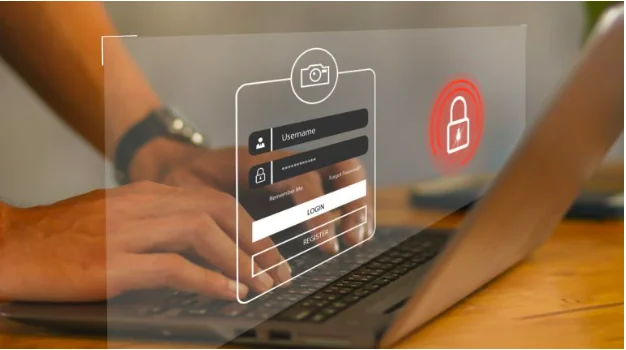In a world filled with increasing cyber threats, ensuring the security of online transactions and user accounts has never been more important. One technology that has proven its worth in enhancing security and preventing fraud is the One-Time Password (OTP) API. OTPs are temporary codes sent to a user’s device (via SMS, email, or app) to authenticate and verify their identity.
This extra layer of protection is especially critical in industries that handle sensitive data. OTP APIs are not just a security measure but a tool for building customer trust, reducing fraud, and complying with security regulations. Let’s take a closer look at how OTP APIs have been successfully implemented in various sectors.
The importance of OTP in various industries
OTP APIs provide additional security by ensuring that even if a user’s primary password is compromised, unauthorized access can still be brought to a stop. The code sent by OTP APIs is temporary and expires shortly, making it significantly harder for attackers to exploit. This temporary nature of OTPs provides a clear advantage over static passwords, which are often vulnerable to theft through phishing, brute force attacks, or data breaches.
While OTP APIs offer robust protection across industries, their use is particularly critical in sectors that manage high volumes of personal, financial, and health data. Industries like banking, e-commerce, healthcare, and telecommunications rely heavily on OTPs to secure sensitive customer information and ensure their services meet security standards.
Case studies of successful OTP API implementations
Below are case studies of successful OTP API implementations:
1. Banking and financial services
The financial sector is one of the industries most targeted by cybercriminals due to the high value of personal and financial data. Banks, online payment platforms, and financial institutions face an ongoing challenge to protect customers from fraud and cyberattacks.
A case study example is PayPal.
PayPal is a well-known online payment platform that processes millions of transactions daily. Due to the high value of these financial transactions, PayPal must ensure secure login and payment processes. The company employs OTP APIs for various security measures, mainly when users access their accounts or initiate payments.
When users log into PayPal from a new device or make a transaction, an OTP is sent to their active phone number or email to confirm their identity. The results have been overwhelmingly positive. PayPal has significantly reduced the risk of fraud and unauthorized transactions by using OTPs. The added layer of security builds user trust, which is essential for a financial platform dealing with sensitive information. According to the PayPal Security Blog, OTPs have been instrumental in minimizing fraud risk while enhancing overall user confidence in the platform.
Another example comes from Wells Fargo, one of the largest banks in the United States. The bank uses OTP APIs as part of its two-factor authentication (2FA) system for online banking. Wells Fargo uses OTPs for high-value transactions, such as transferring large sums or setting up new payees. OTPs help confirm that the transaction is legitimate and authorized by the account holder, protecting both customers and the bank.
2. E-commerce
The rise of online shopping has brought about new challenges for e-commerce businesses, particularly in fraud prevention. Account takeovers, stolen payment information, and fraudulent transactions are constant threats in the e-commerce industry. OTP APIs offer a reliable solution to ensure secure logins and transactions, building customer trust and reducing the risk of fraud.
A case study example is Amazon.
Amazon, one of the world’s largest online retailers, has implemented OTP APIs to secure user accounts and protect high-value transactions. When a customer logs into their Amazon account from a new device or location, they are required to enter an OTP to verify their identity. This simple yet effective security measure has helped Amazon significantly reduce unauthorized account access.
Amazon also uses OTP APIs to secure the checkout process for high-value purchases. Customers who attempt to make a large purchase enter an OTP to confirm the transaction. This additional step ensures that only authorized users can complete high-value transactions, essential for preventing fraud and protecting customers.
Another is Shopify, a leading e-commerce platform for businesses to create online stores. Shopify also relies on OTP APIs to protect merchants and customers. Its two-factor authentication system requires merchants to enter an OTP when logging into their accounts or making store changes. This system helps ensure unauthorized users cannot access sensitive business data or perform harmful actions, such as modifying product listings or processing fraudulent orders.
Shopify’s use of OTPs has helped improve the platform’s overall security, ensuring merchants and customers can safely conduct business online. With the increasing prevalence of fraud in e-commerce, OTPs have become a critical tool for Shopify in providing secure online experiences.
3. Telecommunications
Telecommunication companies handle large amounts of customer data, such as personal details, billing information, and call records. This makes them prime targets for cyberattacks, so protecting customer accounts and preventing unauthorized access is crucial. OTP APIs are frequently used in the telecommunications industry to verify customer identity during various processes, such as account management, billing, and service activation.
4. Healthcare
The healthcare sector is one of the most sensitive industries in terms of data protection. Cybercriminals often target patient data, including medical history and personal health information. Securing this data is critical for patient safety and is required by regulations like HIPAA. OTP APIs have become essential for ensuring secure access to patient portals and medical records.
Case study: MyChart
MyChart, an online patient portal used by healthcare organizations across the U.S., uses OTP APIs to secure access to patient records. When patients log into the portal or request access to their medical information, they receive the OTP on their registered phone or email. This additional security step helps prevent unauthorized access to sensitive health data, ensuring that only the rightful patient or healthcare provider can access medical records.
By implementing OTPs, MyChart has enhanced security and ensured compliance with privacy regulations like HIPAA. This measure gives patients greater confidence in the safety of their health information.
HealthFirst, on the other hand, is a healthcare provider that uses OTP APIs to verify patient identity during online consultations or when accessing personal health records. OTPs also secure patient registration on the HealthFirst platform. This ensures that only authorized users can access personal health information, which is especially important given the sensitive nature of medical data. Implementing OTP APIs has helped HealthFirst improve security, reduce data breaches, and enhance patient trust.
Benefits of OTP APIs
The benefits of OTP APIs include:
1. Enhanced security
The primary advantage of OTP APIs is their added security layer. OTP APIs ask users to enter a temporary code along with their password, preventing unauthorized access even if the password is known. This additional step makes it significantly harder for attackers to gain access, as they would need both the password and the one-time code. As a result, it reduces the risk of account breaches and enhances overall account protection.
2. User trust
Building customer trust is essential in industries dealing with sensitive information. Customers are more likely to trust services that take extra steps to protect their data, and OTP APIs demonstrate a commitment to security. This trust can lead to higher customer satisfaction, loyalty, and engagement.
3. Compliance
OTPs help businesses comply with strict regulatory requirements in sectors like healthcare and finance. Laws like HIPAA and GDPR mandate that organizations implement secure authentication methods to protect sensitive data. OTP APIs help companies meet these requirements, ensuring they avoid penalties while enhancing security.
How OTP APIs improve customer experience
OTP APIs significantly enhance customer experience through the following:
1. Efficiency
Seamless integration with existing systems allows businesses to provide two-factor authentication (2FA) without disrupting their services. Customers find the process quick and straightforward: They get a one-time code and use it to finish the authentication.
2. Scalability
As businesses grow, so does the demand for secure authentication. OTP APIs scale effortlessly, making them ideal for companies with diverse customer bases. Whether managing hundreds or millions of users, OTP APIs can handle high volumes of authentication requests without delays or system failures.
By delivering security and convenience, OTP APIs foster trust and loyalty among users, helping businesses meet the dual goals of protecting data and providing a superior customer experience.
The vital role of OTP APIs in enhancing digital security
OTP APIs have proven critical in safeguarding online transactions and protecting sensitive data across various industries. In banking, e-commerce, telecommunications, or healthcare, these APIs offer an additional layer of security that significantly reduces the risk of fraudulent activities and unofficial access.
The case studies demonstrate how effectively OTPs can secure online accounts, sensitive transactions, and personal information while ensuring compliance with regulatory requirements. OTP APIs play an integral role in ensuring the safety and reliability of digital services by providing an easy, efficient, and secure way to authenticate users. As cybersecurity threats evolve, OTP APIs remain crucial to digital security, offering businesses and customers a reliable way to protect personal and financial data.





